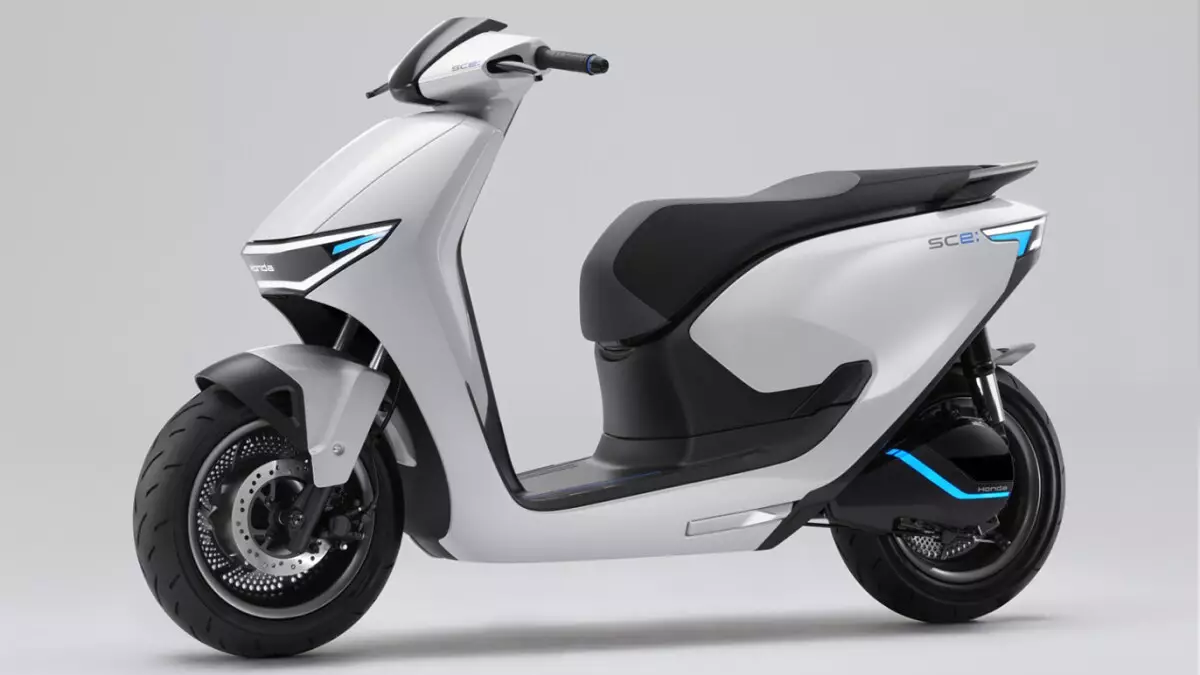The electric vehicle (EV) revolution is in full swing, particularly in the two-wheeler segment, where robust development is underway. The Indian market is witnessing an influx of innovative electric scooters, spurred by various manufacturers positioning themselves to tap into the dynamic and rapidly growing EV ecosystem. In this exploration, we delve into three eagerly awaited electric two-wheelers set to impact the Indian landscape in the near future, reflecting on their offerings, potential market positioning, and the broader implications for consumers and the industry alike.
Leading the charge is Honda Motor Company, renowned for its long-standing legacy in the motorcycle industry. Anticipation is building around the expected launch of the Honda Activa EV in March 2025, which is projected to share design paradigms with the widely recognized Activa 110. This foray into electrification is noteworthy, as the Activa range has dominated the scooter segment for years.
The Activa EV aims to introduce two detachable and swappable Honda Mobile Power Packs, addressing consumer concerns regarding battery life and charging infrastructure. This focus on convenience could be a determining factor in its acceptance among potential buyers, particularly urban commuters juggling their busy schedules. Moreover, the electric scooter features a fully digital touchscreen console, enhancing user experience and functionality through smart technology. With an anticipated range exceeding 100 kilometers on a single charge, it positions itself favorably against competitors such as Ola S1, TVS iQube, and Ather 450, all vying for market share in the burgeoning electric segment. Ultimately, the expected price point of around Rs 1 Lakh (ex-showroom) will be a vital aspect to monitor, as it will influence consumer uptake and brand loyalty.
TVS: Catering to Diverse Market Needs
Another heavyweight, TVS Motor Company, is reportedly mobilizing its resources to launch two electric scooters in the upcoming months. The company’s strategy appears to include a dual approach: one scooter intended for the B2B market and another aimed at the mass consumer segment. The electric version of its popular TVS Jupiter is particularly exciting, as it is designed to cater to daily commuters looking for a reliable transportation option.
With an expected range between 70 to 80 kilometers on a full charge, the Jupiter EV is poised to establish itself as an affordable and practical choice for the average Indian consumer. Notably, its proposed price point below Rs 1 Lakh ensures that it aligns effectively with the purchasing power of many, particularly in a price-sensitive market. This strategic maneuver also reflects an understanding of consumer behavior, as many users prioritize both cost and function when seeking an electric alternative to traditional scooters.
Suzuki is also gearing up for an electric rollout with the anticipated Burgman EV, which marks a significant milestone for the brand in its venture into the electric domain. With production slated to commence in December 2024, and a lofty annual sales target of 25,000 units set, the company is exhibiting confidence in the product’s capacity to appeal to the target audience.
Details of the Burgman EV remain scarce; however, the decision to utilize a fixed battery pack diverges from the earlier suggestions of a detachable model, possibly to optimize performance and durability. Codenamed XF091, the Burgman EV is expected to unveil at the Bharat Mobility Global Expo 2025, coinciding with a period when consumer interest in electric two-wheelers is set to peak. Although the price is yet to be determined, this strategic timing and position could provide Suzuki with significant leverage to captivate potential buyers.
The forthcoming launches by Honda, TVS, and Suzuki underscore a transformative shift in mobility within India, poised to redefine commuting experiences through enhanced technology and eco-friendly solutions. As these manufacturers innovate to meet the diverse needs of consumers, their forays reflect not only competitive spirit but also a larger commitment to sustainability and improved urban mobility. With the Bharat Mobility Global Expo 2025 on the horizon, excitement is palpable, and the marketplace is ripe for transformation. Observers should remain vigilant, as the electric two-wheeler segment is not merely a trend but a revolution aimed at reshaping the future of transportation in India.


Leave a Reply